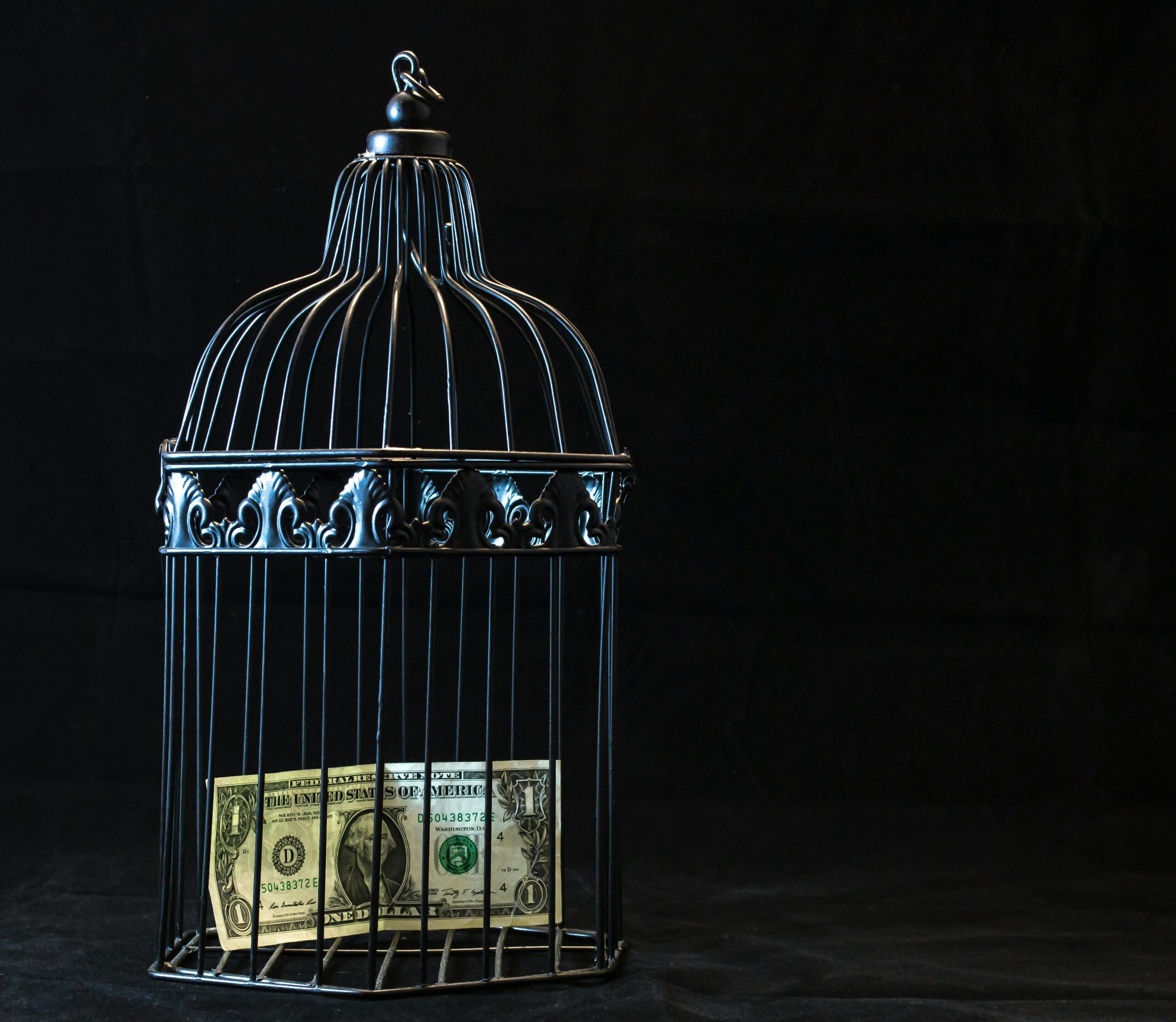 When I started my first job, I made a classic mistake...
When I started my first job, I made a classic mistake...
Like many fresh graduates, I got my first paycheck... paid my rent... took care of bills... and then tried to save whatever was left.
And as you might guess, there wasn't much left at the end of the month.
I didn't know better, though. I soon found myself constantly worried about unexpected expenses, like car repairs or medical bills... and I couldn't seem to get ahead.
This is the cycle far too many people find themselves in – living paycheck to paycheck.
It's easy to fall into this stressful trap. And it's hard to break free. So today, that's exactly what I want to help you do.
As you'll see, there's a far better approach to your finances... one that flips the traditional mindset on its head and sets you up for long-term success.
 Most people follow a broken formula when it comes to their hard-earned cash...
Most people follow a broken formula when it comes to their hard-earned cash...
They believe "income minus expenses equals savings."
However, the key to transforming your financial future involves a simple – yet powerful – shift...
Income minus savings equals expenses.
Think about how your taxes work – once the money is withheld from your paycheck, you don't get to spend it.
Your savings should work the same way.
When you get paid, the first thing you should do is decide on a set percentage or amount to save... no matter how small. Treat it like a tax you impose on yourself. And don't touch it again.
One former colleague of mine started with a modest salary... and treated their savings as an untouchable "expense." They committed to saving 10% of their income no matter what.
Ten years later, they had enough to make a down payment on a house – without ever feeling like they were sacrificing anything.
 Saving alone isn't enough, though...
Saving alone isn't enough, though...
You also need a safety net. So the next crucial step is to build a financial buffer.
This isn't your vacation fund or your "fun money" for a shopping spree. This is your emergency fund. It should cover three to six months of essential living expenses if something goes wrong, like losing your job or facing an unexpected medical emergency.
Think of this fund like an insurance policy... except it's self-imposed and self-funded.
One friend of mine built this fund up over several years by setting aside $500 a month. When their company downsized unexpectedly, they weren't scrambling to find another job.
Instead, they had six months' worth of expenses covered... giving them the peace of mind to find the right opportunity without financial pressure.
The key here is discipline. This isn't money to dip into for a last-minute trip or holiday presents. It's there for one purpose – replacing your income when you need it most.
This kind of financial security will help you weather life's storms without the stress.
 That brings me to one of the most underrated tools in personal finance...
That brings me to one of the most underrated tools in personal finance...
I'm talking about delayed gratification.
When you feel the urge to spend on non-essential items, don't say "no"... just say "not yet."
Delay that purchase by a few months or even a year and watch how your financial position improves over time.
While it might seem small, it's more powerful than you think. For example, one couple I know wanted to upgrade their home's furniture. Instead of spending thousands right after they got a raise, they waited a year...
By then, they had built up their emergency fund and still had money left over. The new furniture felt like a reward for their discipline. And they didn't have to stress about the cost.
I've seen this happen countless times. People think they need to buy something now. When they wait, though, they either find they don't need it... or they've saved up enough to buy it without guilt or financial strain.
This simple act of waiting can work wonders for your financial health.
 These three simple steps are the keys to a stress-free financial future...
These three simple steps are the keys to a stress-free financial future...
- Save first...
- Build a safety net, and...
- Delay gratification.
While they may sound easy, they require discipline... and that's why they work. The earlier you start, the better off you'll be.
It's not about how much money you make. It's about how you manage it. People who follow these principles are setting themselves up for less financial stress and more peace of mind.
If you start putting away even a small amount today, you'll position yourself for a lifetime of financial security. You won't regret it.
Wishing you love, joy, and peace,
Joel
October 25, 2024



 When I started my first job, I made a classic mistake...
When I started my first job, I made a classic mistake...

